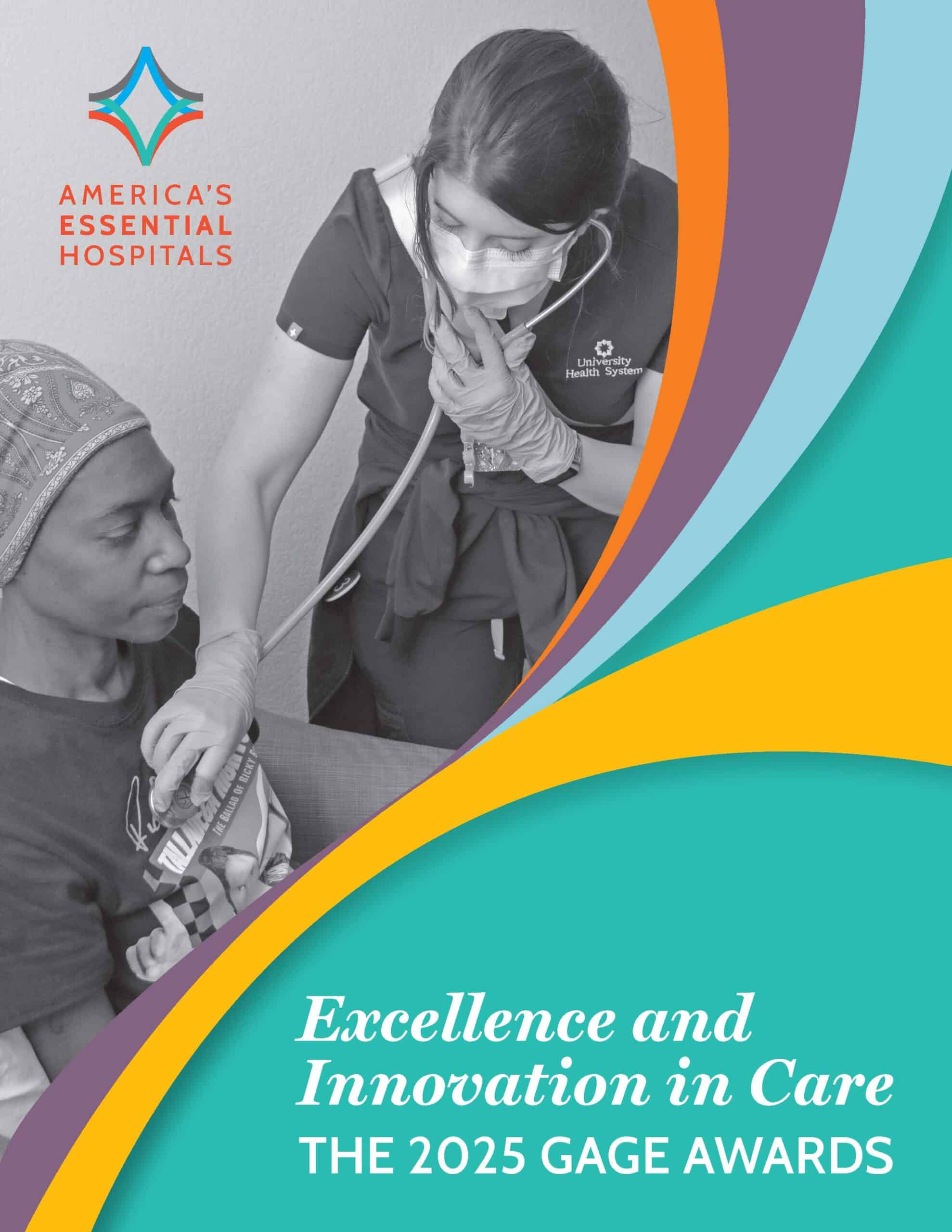Through the Gage Awards, America’s Essential Hospitals recognizes member hospitals and health systems for successful projects to improve the quality of care and population health. The awards promote the spread of best practices and innovative programs to other organizations and support the association’s research, policy, and advocacy work by sharing member success stories with external audiences.
2025 Gage Awards: Population Health
Gage Awards for population health recognize programs that aim to improve specific health outcomes for a defined population or community by addressing the social and economic factors that influence health. Population health can be defined as “the health outcomes of a group of individuals, including the distribution of such outcomes within the group” (Kindig & Stoddart, 2003).
Winner
Valleywise Health
Center for Refugee and Global Health
2025 Gage Awards: Quality
Gage Awards for quality recognize activities that improve the quality of care delivered, improve patient experience, engage patients and their families, or reduce or eliminate harmful events affecting individual patients or groups of patients. Quality improvement programs may include evidence-based interventions, standardized practices, bundles of care, and checklists.
Winner
Natividad Medical Center
Reducing Anemia in Pregnant Patients
2025 Gage Awards: Operational excellence
Gage Awards for operational excellence honor programs that transform health care operations to improve efficiency, workforce engagement, and service delivery. These initiatives streamline workflows, optimize resources, and implement best practices to enhance patient care and overall performance.
Winner
University Health
The First Hospital at Home Program in South Texas
2025 Gage Awards: Honorable Mentions
The 2025 Gage Award honorable mentions were featured in a new episode of our “Essential Stories” podcast. Hear program leaders discuss their work:
Population Health
ECMC – Advancing Hypertension Control in Disparate Populations
Quality
NYC Health + Hospitals/Jacobi and North Central Bronx – Compassion for Community: Continuing Care After Death
Operational Excellence
Bergen New Bridge Medical Center – Center for Comprehensive Addiction Treatment, “No Wrong Door”
Excellence and Innovation in Care: The 2025 Gage Awards

America’s Essential Hospitals proudly presents Excellence and Innovation in Care: The 2025 Gage Awards, an illustrated guide to award-winning and highlighted programs in the Gage Awards’ Quality Improvement, Population Health, and Operational Excellence categories.
This guide documents the exceptional work by essential hospitals to improve the health and well-being of the people and communities they serve, including programs that support refugees navigating the U.S. health care system, reduce anemia and transfusion among pregnant patients, and provide hospital-level care at home.
Explore these and other innovative programs in the report.
